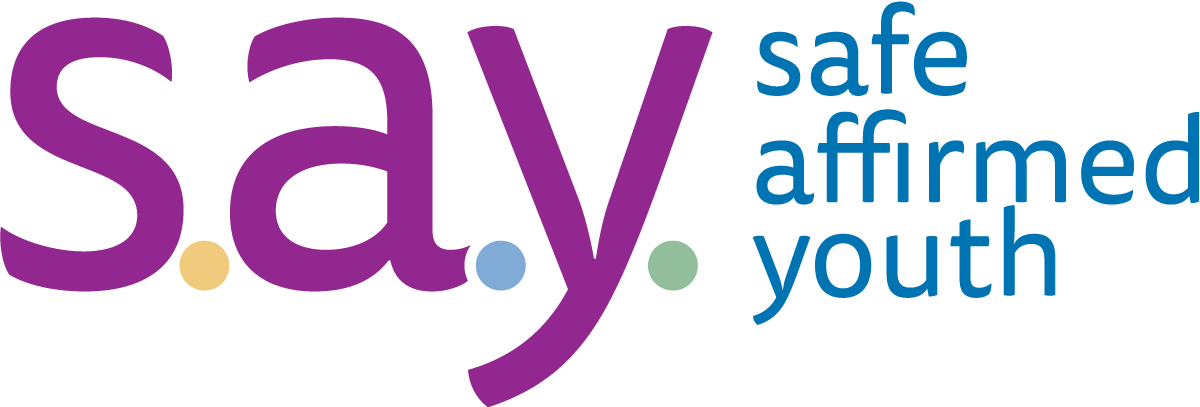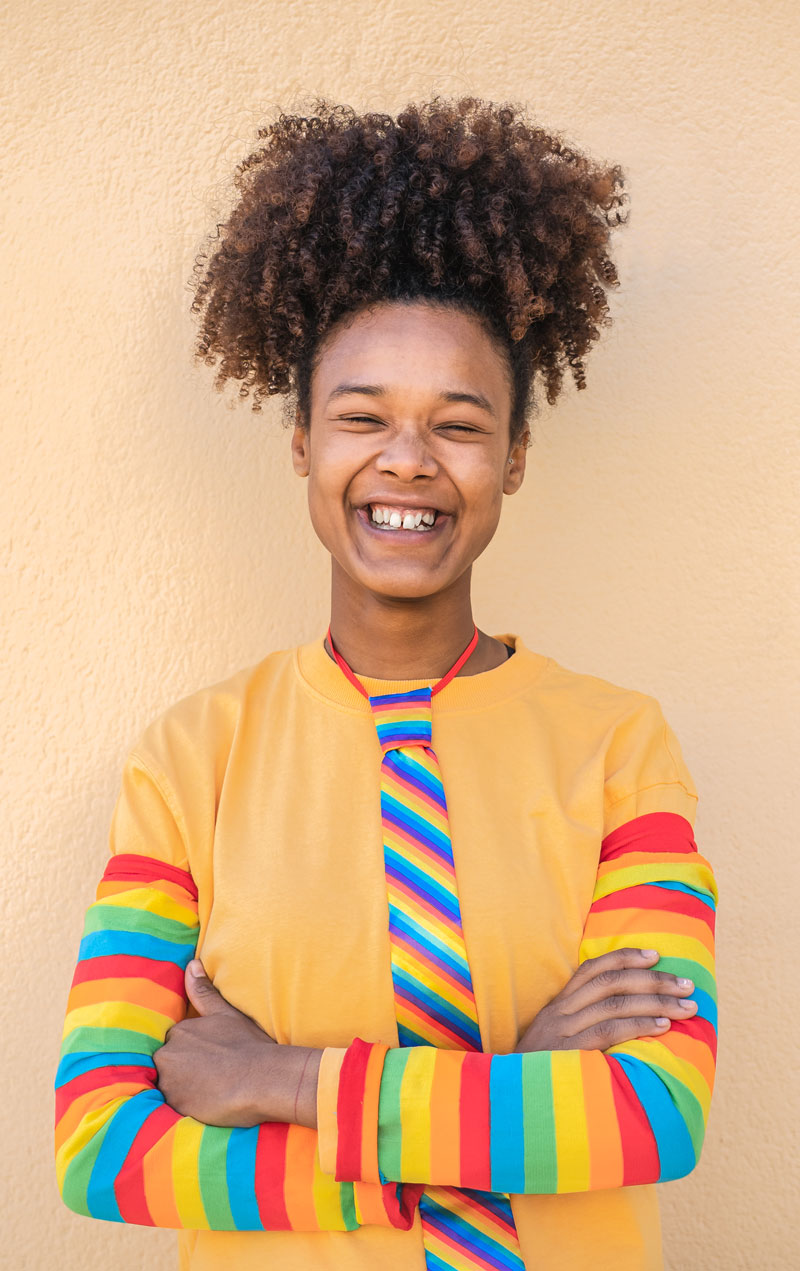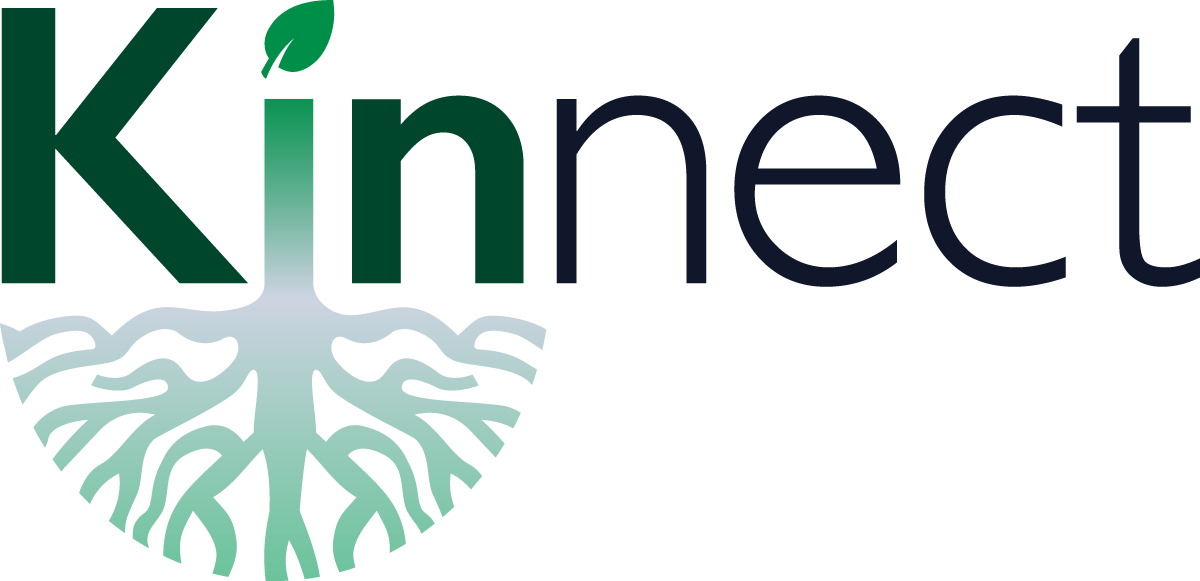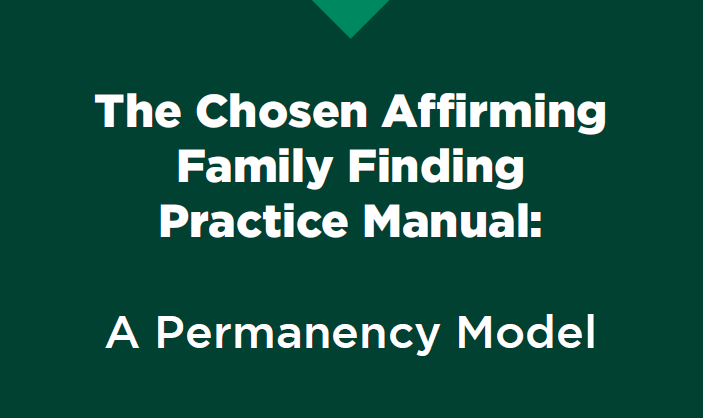
Safe Affirmed Youth (s.a.y.)
Kinnect believes that every young person deserves unconditional love, lifelong support, and commitment from their family, chosen family, and community. The goal of s.a.y. is to keep youth safely with their families of origin when possible and to seek permanency with affirming caregivers when it is not.

Chosen Affirming Family Finding (CAFF)
Safe Affirmed Youth (s.a.y.) is a continuation of the work Kinnect began as part of the Affirm Me Program from 2017-2021. Kinnect implemented the Chosen Affirming Family Finding (CAFF) model which helps to engage the biological, adoptive, and chosen family of young people who have been separated from them by out-of-home foster care and/or young people who are at risk of family separation. The overall goal is to locate and engage as many family members and significant adults as possible for the purpose of identifying committed, life-long, and positive connections. These connections lead to a robust network of affirming individuals who provide emotional and potentially legal permanency for LGBTQ+ young people. Currently, Kinnect to Family and Youth-Centered Permanency Roundtables are integrating CAFF as a cultural adaptation to their work.
During the Affirm Me program, Kinnect also supported the implementation of the Youth Acceptance Project (YAP) with partners at Frontline in collaboration with Family Builders, the purveyor of the model. YAP is a model that works with families of LGBTQ+ youth to address their fears and worries related to their LGBTQ+ child and help the family learn new and supportive behaviors to improve their youth’s well-being. Team members use a trauma-informed approach to partner with caregivers, supporting them to process misinformation, resistance, fear, and grief they may feel when they learn that the child is LGBTQ+. During the Affirm Me program, YAP was used as a prevention tool for young people who were at risk of leaving their caregiver’s home because of rejection. When the federal grant came to an end, Frontline embedded the program as part of their existing work with the support and partnership of Family Builders.

Why Safe Affirmed Youth?
Young people with diverse SOGIE (Sexual Orientation, Gender Identity, and Gender Expression) are at greater risk for:
- Physical and emotional abuse
- Substance abuse
- Suicide attempts
- Physical and mental health challenges
- Homelessness
- Interpersonal or community violence
- Bullying or harassment
- Academic challenges or increased school discipline
- Discrimination
LGBTQ+ youth are over-represented in the foster care system. The Cuyahoga Youth Count: A Report on LGBTQ+ Youth Experience in Foster Care identified that 32% of young people in foster care identified as LGBTQ+ while only comprising 9.5% of the US population. In addition, LGBTQ+ youth reported more mistreatment while in foster care, more frequent placement changes, and were more likely to need mental health services compared with their non-LGBTQ+ peers.
Above all, LGBTQ+ youth need committed, affirming relationships to achieve positive lifelong outcomes. Long-term foster care is not a solution for children who have been rejected by or separated from their biological families. Moreover, emancipating youth from care without permanent connections leaves them at high risk of the challenges above. Safe Affirmed Youth aims to keep children safely in their families of origin, helping return them home when possible. When that is not possible, the goal is to seek permanency with affirming caregivers.
Safe Affirmed Youth goals
- Increase acceptance and decrease rejection of youth’s unique SOGIE
- Increase overall physical and emotional health and well-being of youth
- Increase the use of LGBTQ+ resources and supports by families & caregivers
- Develop an accepting and affirming network of emotional supports
- Support youth and families to remain together safely to build relationships. At the same time, address underlying feelings of rejection and move toward acceptance and affirmation.
- Ensure that youth in foster care move toward permanency. In addition, decrease the risk of aging out of the child welfare system

Get in touch
For more information, please contact us at info@kinnectohio.org or call (216) 692-1161.
Background: Affirm Me
From 2017-2021, Kinnect partnered with Cuyahoga County Division of Children Family Services, Case Western Reserve University, and A Place for Me on a grant project designed to improve outcomes for youth with diverse sexual orientations, gender identities, and gender expressions (SOGIE) who were in foster care. The National Quality Improvement Center on Tailored Services, Placement Stability, and Permanency for Lesbian, Gay, Bisexual, Transgender, Questioning, and Two-Spirit Children and Youth in Foster Care[1]) sponsored the project.
This partnership was called Affirm Me. Affirm Me involved three primary strategies. First, the safe identification of youth in foster care who identify as LGBTQ+. Second, the creation of a PRIDE Network of foster and kinship caregivers to meet the needs of LGBTQ+ youth in care. Also, the Pride Network was intended to advocate and educate professionals, caregivers, and administrators on the needs. Finally, the third strategy was implementing the Chosen Affirming Family Finding model to work with biological family members on acceptance of you, as well as reunification or relational permanency.
Kinnect led the development and implementation the Chosen Affirming Family Finding (CAFF) intervention and Youth Acceptance Project (YAP) intervention. These interventions involved working with families toward accepting youth and supporting reunification. Additionally, CAFF and YAP worked to create a network of support that includes lifelong affirming family, kin, or chosen family.
[1] The National Quality Improvement Center (QIC) on Tailored Services, Placement Stability, and Permanency for Lesbian, Gay, Bisexual, Transgender, Questioning, and Two-Spirit (LGBTQ2S) Children and Youth in Foster Care has been established in collaboration with the Children’s Bureau (CB), to develop, integrate, and sustain best practices and programs that improve outcomes for children and youth in foster care with diverse sexual orientations, gender identities, and gender expressions (SOGIE). The QIC-LGBTQ2S is led by the Institute for Innovation & Implementation at the University of Maryland School of Social Work in Baltimore along with participating core partners: Human Service Collaborative; Judge Baker Children’s Center; and Youth M.O.V.E. National:https://qiclgbtq2s.org/about-the-qic/


